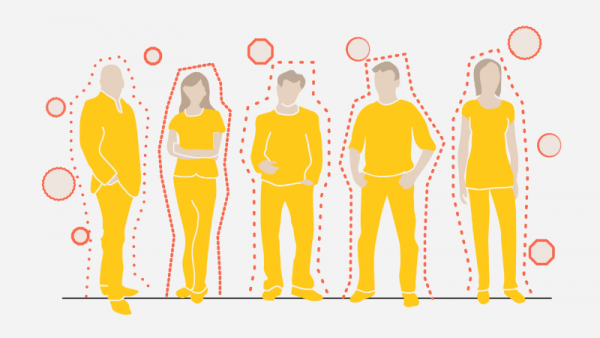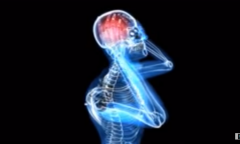By KM Diaz, | April 19, 2017

Psychosis often occurs during adolescence or early adulthood. (YouTube)
A specific brain marker could identify the risk of the first episode of psychosis during early adulthood. This may indicate the effective treatment and therapy to prevent the development of the mental illness.
Psychosis often occurs during adolescence or early adulthood. Young people are likely to experience their first psychotic episode during this period. The illness is sometimes difficult to prevent because of its inconsistent signs and symptoms.
Like Us on Facebook
A Canadian research has raised hopes of identifying and preventing psychosis. The psychiatrists at the University of Montreal discovered a brain marker that can indicate the early vulnerability of teens even before the onset of complete symptoms. The study was published in the American Journal of Psychiatry.
Dr. Patricia Conrod, the senior author of the study and a psychiatry professor at the University of Montreal, said that being vulnerable due to the first episode of psychosis can be distinguished throughout the early adolescence period.
A person's emotional response to both and non-emotional and non-threatening signals increases when the first episode of psychosis occurs, and the brain will assign a significant response to the things in the environment even if there's no threat.
This is where the neurological abnormality starts, the brain begins to manifest in seeing the objects and events as being filled with sinister intention and will start to imagine things that are not present in the environment.
The majority of the signs and symptoms of psychosis involves paranoia, and delusions - caused by the overreaction to environmental stimuli. The psychotic delusions can be interpreted as a behavior of a person that develops heightened importance accompanied with a threat.
How to Identify Psychosis
In the study, the research team conducted cognitive and brain testing on 1,000 European adolescents who are 14 and 16 years of age. The brains of the teenagers were scanned while taking a cognitive test for inhibitory control, processing of emotional and non-emotional cues, and reward sensitivity. The test was used to regulate the attention and behavior of the participants.
The teens also answered self-reported questionnaires to evaluate how often they experienced psychiatric symptoms. After that, the researchers isolated the 14-year-old participants who were found to have occasional psychotic-like experiences. The brains of these teenagers responded to non-emotional stimuli that are considered to be a strong emotional import.
Meanwhile, for the 16-year-old participants, about six percent experienced paranoia, delusions as well as auditory and visual hallucinations. Heightened brain reactivity to neutral stimuli during age 14 could lead to future psychotic symptoms at the age of 16.
Prevention and Treatment
There are limited medications for psychosis, but identifying it at an early stage could delay its onset. According to Thomas Insel, former director of the National Institutes of Mental Health, delaying the development of psychosis for about five years could make a huge difference in the impact of the outcomes.
Still, it is uncertain if using drugs or therapeutic interventions could limit the heightened emotional reactivity in the brain. The research team are conducting further studies to develop better tools for predicting psychosis, and improve the future prevention and treatment procedure.
-
Use of Coronavirus Pandemic Drones Raises Privacy Concerns: Drones Spread Fear, Local Officials Say

-
Coronavirus Hampers The Delivery Of Lockheed Martin F-35 Stealth Fighters For 2020

-
Instagram Speeds Up Plans to Add Account Memorialization Feature Due to COVID-19 Deaths

-
NASA: Perseverance Plans to Bring 'Mars Rock' to Earth in 2031

-
600 Dead And 3,000 In The Hospital as Iranians Believed Drinking High-Concentrations of Alcohol Can Cure The Coronavirus

-
600 Dead And 3,000 In The Hospital as Iranians Believed Drinking High-Concentrations of Alcohol Can Cure The Coronavirus

-
COVID-19: Doctors, Nurses Use Virtual Reality to Learn New Skills in Treating Coronavirus Patients











